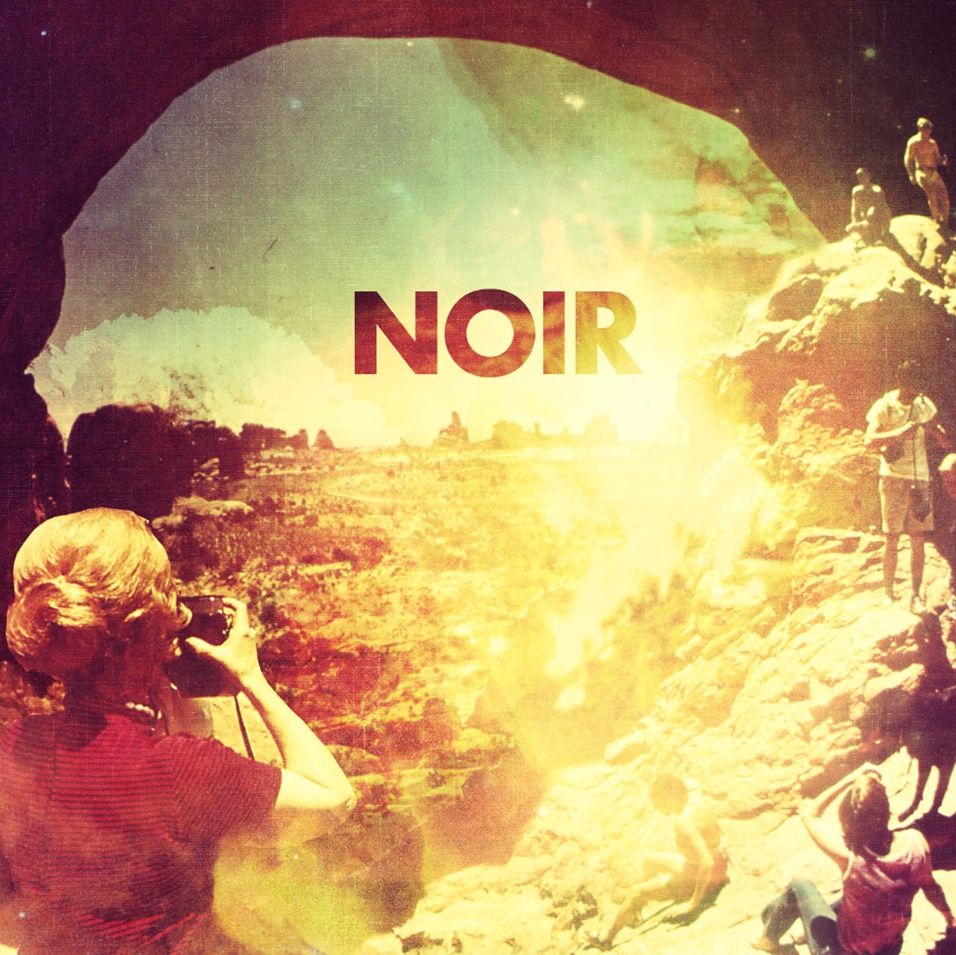Since its inception hip-hop has always had stints of transcending its minimal production foundation into the more sophisticated realm of electronic music—the 90s bender of femm dominated Portishead-chasing pop-leaning trip-hop, or the instrumental sample stitching of DJ Shadow on Endtroducing…, or The Avalanches on Since I Left You. The post-Dilla legacy came to a head last year on Flying Lotus’s Coltrane-bent innerspace exploration of Cosmogramma, causing the distinction between electronic music and jazz to blur into an abstracted array of star lines. Artists like Shabazz Palaces and Lil B have managed to continue the rap game over highly eclectic sampling workouts (in the case of the former) and highly cinematic and emotional soundscapes (in the case of the latter) that’d do fine standing on their own without vocal presence (as they did on Clams Casino’s Instrumental Mixtape earlier this year).
The production duo Blue Sky Black Death were inducted to rapless prog-hop in 2006 by way of narrative post-rock. On their third instrumental outing, Noir, they set out on another scratchy, emotionally momentous odyssey of gigantic synth melodies with a deluge of shape-shifting samples ranging from mournful vocal washes to chirping orchestral arrangements backed by stomping mid-tempo drum programming. It all comes through in a sort of shuttering deteriorating ultraviolet light like a shimmering drive-in movie theater projector casting its picture onto a melting billboard screen. While the title is a little out of place, the album cover depicting an overexposed shot of a nuclear explosion isn’t.
Noir is a thick daunting journey. It’s impossible to keep track of how many samples are deployed on any given track or what’s found sound and what’s original contribution. Though it doesn’t really matter. It’s all in service to a wordless thematic type of adventure narrative that the duo seems to be reaching for—full of life lessons and worldly observations by way of conversations lifted from films and the like. Every track ends at a completely different point from which it started. The number of turns packed into a song and its variety of sonic treatment might have come off as overly indulgent if Noir wasn’t as affecting as it is. The casually melodic nature of the record makes it pretty clear the listener is supposed to get lost in this stuff and it’s certainly hard not to. There is a lot to gawk at as it’s a record that, with some investment, provides rewards on multiple spins through.
While Noir is best consumed as a whole document, there are a few standouts. “Sleeping Children Are Still Flying” might be the mostly wildly varied track, pouring a milky steel guitar sample over a shimmering organ drone to start and preoceeding with a myriad of languid string turns and four or more different vocal samples, including a children’s choir. It’s a lot of stuff, but it’s anything but academic production wankery. Near the middle, as the synths have taken on a looping cascading sequence, a crash symbol announces a chord change and a trumpet wafts in as wordless vocals sing about some neon yellow dreams. It’s a transcendent moment, but it’s not showy or soaring. Noir manages to remain oddly passive despite its maximalist style. It’s hard to label anything here subtle, as it is rightfully big and blown out, full of peaks and valleys, but there’s a deftness at play that keeps things from meandering.
I can imagine Noir having the affect of over-stimulation for some. Despite all of its twists and turns, it remains staunchly consistent throughout and without the motivation to pick things apart it might turn into a singular sixty-two minute cascade covered in a goby sheen of reverb; though it excels as such. It’s the kind of thing that works as transfixing background subconsciously-consumed highway music. But there are a couple more arresting style tracks. “In The Quiet Absence of God” (yes, the titles are exceedingly post-rock-y) is a momentary rest at beatless vertical reverence instead of the ceaseless downhill plunge found on most everything else. “Starry” also has a pretty cathartic shift that demands attention as a deeply intoned goddess starts humming down from the clouds and fuzzy guitars melt skyward. If anything, Noir is a testament to what a cohesive emotional soundtrack this type of music can be.

